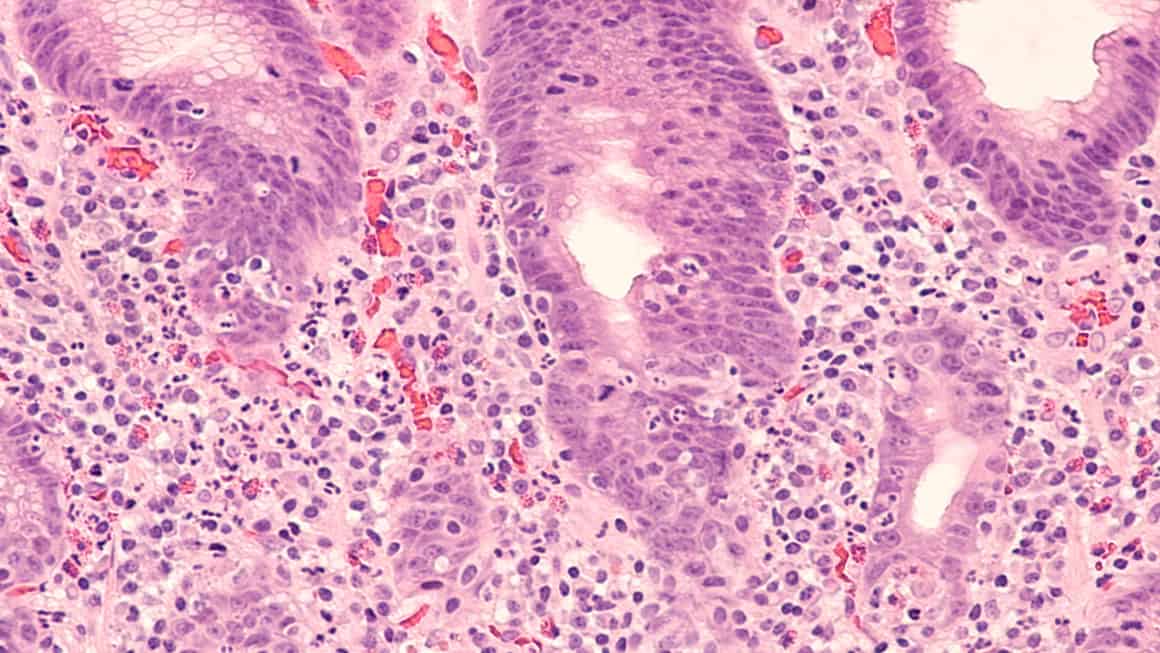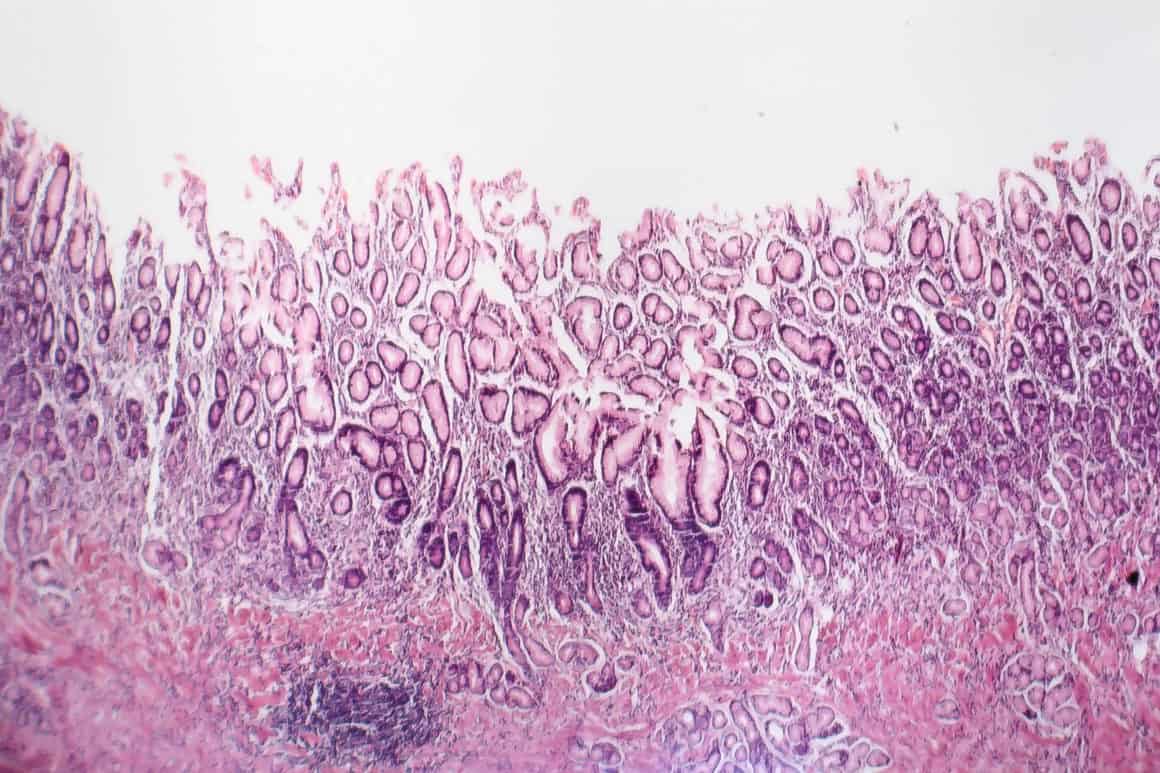A gastritis diagnosis typically starts with a physical exam and questions about a patient’s health history. Some cases of gastritis can be diagnosed without a diagnostic test. If a doctor does order a test for gastritis, it will likely be an endoscopy—when a flexible camera tube called an endoscope is inserted into the digestive tract. Other tests include a blood test or stool test, or a urea breath test to check for an H. pylori infection.
Diagnostic Tests
- Endoscopy of the upper gastrointestinal (GI) tract
- Biopsy
- Blood test
- Stool test
- Urea breath test
- Upper GI series
Upper gastrointestinal (GI) endoscopy
An upper endoscopy is a medical examination where a doctor inserts a flexible tube with a camera on the end, called an endoscope, into the digestive tract. The examination is used to look for inflammation and bleeding in the stomach lining that can help diagnose gastritis.
Biopsy

Biopsy showing chronic active gastritis due to Helicobacter pylori (Credit: David A. Litman/Shutterstock.com) 
Histopathology of chronic atrophic gastritis (Credit: Kateryna Kon/Shutterstock.com)
A biopsy is the removal of cells or tissue from a patient’s body to analyze in a laboratory. To diagnose chronic gastritis, a tissue specimen is usually taken from the stomach lining. This removal often occurs during an upper endoscopy exam. The tissue specimen is then examined to determine if the patient has gastritis or a similar condition of the GI tract.
Blood test
Gastritis is often caused by an H. pylori bacterial infection. When a doctor takes a blood sample from the patient, the blood can then be analyzed to see if it contains H. pylori.
Stool test
Gastritis is often caused by an H. pylori bacterial infection. When a doctor takes a stool sample from the patient, the stool can then be analyzed to see if it contains H. pylori.
Urea breath test
This option is another test to determine if the body has been infected by the H. pylori bacteria. Patients must drink a clear, flavorless liquid that contains a radioactive form of carbon. The drink is harmless to humans, but the H. pylori bacteria break down the liquid in the stomach. After drinking the liquid, patients must blow into a bag, which is sealed and tested. Patients who are infected with H. pylori will have a breath sample containing the radioactive carbon.
Upper GI series
This test is also called a barium swallow; patients are given a chalky liquid called barium to better improve the results of the test. The test comprises X-rays of the upper GI tract and fluoroscopy tests to produce images of the stomach, esophagus, and parts of the intestine. These images allow doctors to pinpoint the causes of some of the patient’s symptoms, like pain in the stomach and problems swallowing.
FAQ
How is gastritis diagnosed?
Gastritis can typically be diagnosed after talking with a doctor, since many of the symptoms are common and known to be associated with this specific condition. There are also a variety of different tests that can be used, too. Most of these tests look for the presence of the H. pylori bacteria that can cause gastritis.
These types of tests can be simple and non-invasive, like the blood test, stool test, and urea breath test. When more serious versions of the disease or symptoms are suspected, procedures like an upper GI endoscopy or upper GI series (X-rays and fluoroscopy) are performed.
How do I heal gastritis?
Healing gastritis typically falls into two categories: medications and lifestyle changes. If a patient has the H. pylori bacteria, doctors will prescribe antibiotics to kill the bacteria. Other medications include those to reduce the amount of acid made by the stomach, or antacids, which neutralize stomach acid.
Gastritis symptoms can also be relieved through lifestyle changes. These changes include avoiding spicy, acidic, or fatty foods and eating smaller portions. Other lifestyle changes include avoiding the consumption of alcohol, as well as the NSAID class of medications.
Can gastritis go away on its own?
The condition will sometimes go away on its own. Since the symptoms can be due to food and alcohol, or medications, they will dissipate with a more regular diet. But, if gastritis is caused by bacteria like H. pylori, acid-reducing medications and antibiotics are necessary to relieve the inflammation.
Disclaimer: this article does not constitute or replace medical advice. If you have an emergency or a serious medical question, please contact a medical professional or call 911 immediately. To see our full medical disclaimer, visit our Terms of Use page.






